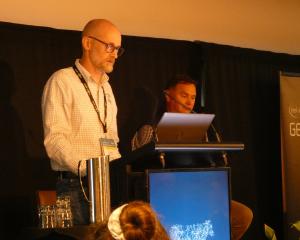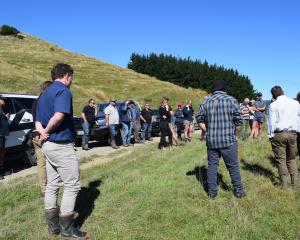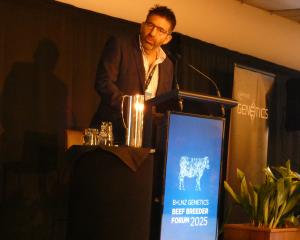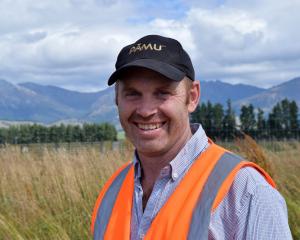
Yesterday, the company announced a $21.8m net loss after tax for the year ended December 31, a $2.6m improvement on last year’s result.
Revenue was down $144m to $2.6 billion, ebitda was up $16.3m to $32.7m and capital expenditure was more than halved, down to $52.5m.
Mr Boulton said Silver Fern Farms had found ways "to do more with less".
Challenging trading conditions over the last few seasons had given the company a renewed focus on its fundamentals and a range of cost savings and improvements had been implemented which avoided a worse result than last year.
"While the last few years have been tough, the reality is that we still need to remain profitable during these periods.
"This is my priority for the business."
Livestock flows had been much better since the start of the year — the company was now trading ahead of budget and the outlook for the remainder of the year was very positive.
From where it was tracking, he was hopeful of being back in black next year.
The year represented a game of two halves, with a recovery in market pricing towards the end of the year which coincided with historically low livestock flows.
While the year started with good livestock throughput and operational efficiencies, market pricing was still subdued.
The second half of the year had a dramatic reduction in livestock flows from winter, followed by unprecedented levels of procurement tension from September onwards which challenged the company’s operating efficiencies and ability to capitalise on improved market returns.
Over the last six months, farmgate sheep and beef returns had been above the five-year average and remained about 25% ahead of the same time last year.
Speaking to farmers at recent events such Wānaka A&P Show, some had record years which was rebuilding confidence, and they were starting to spend more.
Some commented the fun was back in farming and Mr Boulton had not seen that level of optimism for a few years.
That confidence needed to be fostered.
Despite the tough trading period, some of the highest paying global customers wanted to do more business with Silver Fern Farms due to its farmers’ leadership in sustainability within the supply chain.
There was so much opportunity in the sector, he believed.
There was positive long-term demand for sustainable grass-fed red meat and co-products.
Farmers should take confidence from the fact a world of uncertainty only increased demand for what they produced.
Customers in all key markets were also nervous about future food supply.
Mr Boulton was proud of the work done across Silver Fern Farms last year.
Money was being spent wisely — there was a laser-focus on costs — while the company was also challenging itself to do things differently.
It wanted to be a fitter, more resilient business and its team were leaning into that.
Asked whether there was any discussion about plant rationalisation, Mr Boulton said the company regularly assessed how it optimised its network and no decisions had been made to close any sites.
He had publicly said over capacity was an industry challenge.
Silver Fern Farms Co-operative, which jointly owns Silver Fern Farms Ltd with Bright Meat Group, recorded a net loss after tax of $10.9m, up from last year’s $10.7m loss.














